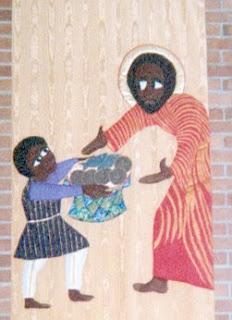It’s always important to know what you’re not dealing with. We don’t have an unknown subject whose identity we’re trying to determine, or whose criminal mind we’re trying fathom. We’re not dealing with a cold case. Higher math’s statistics and probability won’t bring resolution. Neither the crime scene, nor its physical evidence, is available for our investigative probing.
We do have reasonable testimony concerning key actors in what seems to be a conspiracy to bring about Jesus’ death. We know their names, their social positions, something about their professional responsibilities, even where some are buried. It appears that all the key actors understand each other’s roles in society, and respect – even make use of - the boundaries those roles demand they maintain.
There are rather reliable accounts of their whereabouts, as well as their comings and goings, during those days. It all happens within what seems to be a three to four day window of opportunity during which they hatched, successfully, their plot.
Likewise, there is a virtual laundry list of critical, physical evidence: 30 pieces of silver, a small sword, a briefly severed ear, a tunic left behind, whips, thorns, a purple cloak, a fiery warming pit, primitive dice, nails and hammers, and wood, lots of wood. So what’s with these towels?
They, if there’s more than one, keep showing up! We see the first on Thursday evening, at the last supper (John 13. It’s here early Friday morning in Pilate’s hands (Matthew 27:24-26). There’s a tale about a towel and a woman early Friday afternoon. Had to be there, didn’t it, by late that afternoon, because it, alone, is found entombed, rolled neatly on Sunday morning.
If we had them, or one of them, any of them, what would we do? Would we risk destroying them by checking the miles of fibers? Can you see us soiling them by spraying lumiol or swabbing for DNA, to what end?
I’m sure, if we had them, or one of them, any of them, we’d declare them, at least venerable, if not valuable. Like as not we’d promise to stow them reverently the way we do the:
• ribbons we won at childhood athletic competitions
• letter jackets we earned in high school
• silky wedding dresses we wore down the aisle, no matter the fate of that marriage
• quilts grandma made
• full dress medals presented to us by the commanding officer, despite our not displaying that level of courage in a long time
• blankets our first child dragged through 3rd grade.
We might, but I doubt it. In the end, we’d rightly decide that there really is nothing remarkable about the towels. What’s worth noting is how they were used; how they’re still used.
John tells us Jesus, exposed and vulnerable, laid aside his garments, put on a towel, washed his disciples’ feet and dried them with that same towel. John’s Jesus explains that he’s offering an example: "Do you know what I have done to you? 13You call me Teacher and Lord — and you are right, for that is what I am. 14So if I, your Lord and Teacher, have washed your feet, you also ought to wash one another's feet. 15For I have set you an example, that you also should do as I have done to you. 16Very truly, I tell you, servants are not greater than their master, nor are messengers greater than the one who sent them. 17If you know these things, you are blessed if you do them." (John 13:12-17)
Would that we were merely the kind of people who followed only those examples so precisely laid out for us. But, truth be told, we’ll take our cues from most anybody, anywhere, anytime.
Pilate, too, has become exposed and vulnerable, though not by his own choosing. His:
• arrogance and prejudice show through
• willingness to compromise his principles is laid bare
• fear of paying the price for doing the right thing is uncovered
• naked ambition and aggression are transparent
• see-through rationalizations are revealed.
The procurator's posture seems to be: What’s one more leafless tree sprouting a strange fruit on Golgotha? If this circus lynching prompts their pious pastors to hush these uncivilized, ghettoized festival goers, what harm can follow? But let’s get it done without a trace.
Stripped of his dignity he, too, takes on a servant’s task. Except Pilate’s only care is to wash himself, cleanse himself from the dirty little mess he’d let himself get rolled up in. Declaring himself innocent, Pilate doesn’t put on the towel, he throws in the towel. Sounds way too familiar, doesn’t it?
Throwing in the towel, then as now, denies Jesus’ identity, discounts his mission, disrespects his ministry and disregards the verdict his breaking-open, pouring-out servanthood lavishes on us.
Washed and toweled in the blood of this Passover lamb, we don’t need to declare ourselves innocent. We get to call ourselves not guilty. That’s a distinction with a huge difference. The mystery of our Lenten days, as well as our every-days, isn’t who done it. We know how complicit we truly are.
Rather, the mystery is will you remain content to consort and conspire with the usual suspects, or will you keep making your plea with the God whose vulnerable heart’s desire is to give you a share in the master’s life-giving laundry business?
Thursday, March 08, 2007
Subscribe to:
Post Comments (Atom)




No comments:
Post a Comment